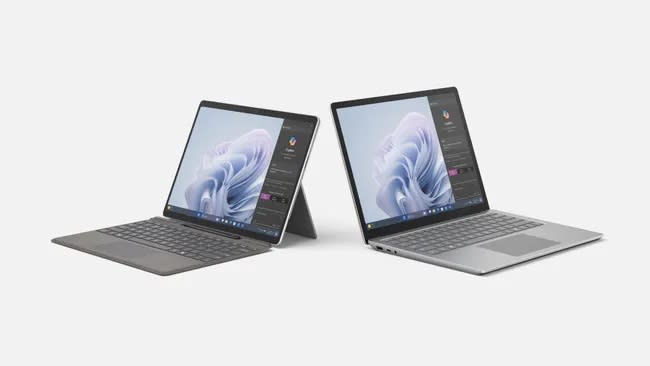Clues in Windows 11 suggest Microsoft’s big AI feature for 24H2 update will be for Snapdragon X Elite laptops only

Windows 11’s incoming linchpin feature for the 24H2 update, which is theoretically AI Explorer, might be exclusive to ARM laptops only – if a fresh clue dug up in Microsoft’s desktop OS means anything.
On X (formerly Twitter), a regular leaker on the subject of Microsoft, Albacore, made the revelation that they’d found the hardware requirements for AI Explorer baked into the code for Windows 11 preview build 26100 (which is supposedly the RTM version of the 24H2 update).
Those system requirements call for 16GB of RAM (not a surprise), a system drive of at least 225GB (that’s total size, as opposed to free space), and an ARM processor (very definitely a surprise).
In fact, these requirements stipulate an ARM CPU and specifically a Snapdragon X Elite NPU.
What this means, in theory, is that AI Explorer is designed to run only on Snapdragon X Elite laptops (the Qualcomm SoC is ARM-based, in case you didn’t guess). This further means that if you have an AMD or Intel (x86) processor in your laptop or desktop PC, then you won’t get AI Explorer.
Analysis: Exploring all the possibilities
This is a pretty huge deal because AI Explorer is – as far as we can discern from the rumor mill – the key feature for AI PCs, and the most important step forward in terms of using AI with Windows 11 in the 24H2 update. It pretty much sounds like the ‘wow’ moment for Copilot’s capabilities, allowing natural language searches to find anything on the PC (“Find me that document which has all the settings for my TV”).
Therefore, for it to be only happening on ARM-based PCs, and not Intel or AMD devices, is a different kind of ‘wow’ moment we guess. A ‘wow, wait a minute – I don’t get this?’ moment, more to the point.
We should stress that we need to be very cautious going by leaks, especially clues that have been dug up deep within the workings of the OS. We don’t know this is happening for sure, by any means – this is just a suggestion.

So, what are the chances of it happening? Well, it seems unlikely that Microsoft would put a hard limit on its best feature happening outside of ARM devices. While the company is clearly placing a lot of weight on the Snapdragon X Elite, and ramping up Windows in ARM in general with AI PCs, surely excluding Intel and AMD PCs from the fun would be going too far… right?
What we might entertain is the possibility that initially, AI Explorer might be just for Snapdragon X Elite laptops – and later, it’ll get a broader rollout to Windows 11 devices of all kinds, including those without ARM CPUs.
A limited exclusive, if you will, and the key point why this might be necessary is the NPU, as the Snapdragon X Elite has a much faster Neural Processing Unit – which accelerates AI workloads. It’s possible that current-gen chips, with their much weaker NPUs that don’t meet the requirement of 45 TOPS (trillions of operations per second, a measurement of power in relation to AI tasks), simply aren’t up to the job of running AI Explorer. Or at least, running it fast enough to be impressive.
The Snapdragon X Elite boasts an NPU with 45 TOPS, and so this might be why AI Explorer will be for systems with this SoC only – just to begin with. Then, when Intel’s Lunar Lake chips – boasting 45 TOPS – or AMD’s Strix Point (at a similar level), arrive later this year, those mobile ranges will be good to go with AI Explorer. So, Microsoft will open up things more at that point.
This is pure guesswork, of course. There’s also another potential benefit for Microsoft – it’ll give folks another reason to pick up a Snapdragon X Elite-toting laptop when they emerge, in theory in June (though AI Explorer itself won’t arrive until 24H2 features are dropped, likely in September, it should be noted).
Microsoft’s own Surface Pro 10 and Surface Laptop 6 are such AI PCs that’ll use that Snapdragon chip, of course. (As a side note, we can presume these devices will have an entry-level floor of 16GB RAM and 256GB of storage – given the other requirements floated above – and that’d be interesting in itself).
Microsoft is on a big push to get Windows on ARM truly off the ground, after all, so this could all be part of that strategy. However, surely the requirement for ARM to drive AI Explorer would be a temporary one if it happens – and Intel plus AMD CPUs would join the party eventually? Well, time will tell, but there’s certainly no reason why they shouldn’t with the next-gen laptop chips from Teams Blue and Red.
